Former ISRO Chairman and visionary scientist Dr. K. Kasturirangan passed away at the age of 84 on April 25, 2025, in Bengaluru. He was one of the most respected figures in India’s scientific and educational landscape. According to a statement by the Indian Space Research Organisation (ISRO), Dr. Kasturirangan breathed his last at 10:43 am at his residence in Bengaluru. His mortal remains will be kept at the Raman Research Institute (RRI) on Sunday, April 27th, from 10:00 am to 12:00 pm for the public to pay their final respects.
An Illustrious Tenure at ISRO
Dr. Kasturirangan served as the fifth Chairman of ISRO from 1994 to 2003, concurrently holding the position of Secretary, Department of Space, for over nine years. His association with ISRO spanned four decades, during which he was at the helm of several landmark missions and pivotal institutional developments.
As Project Director, he led India’s first two experimental earth observation satellites, BHASKARA-I and BHASKARA-II. Under his guidance, ISRO launched its first operational remote sensing satellite, IRS-1A, which became the cornerstone of India’s Earth observation program.
Operationalising PSLV and Advancing GSLV
During his tenure as chairman, one of his most notable achievements was the operationalisation of the Polar Satellite Launch Vehicle (PSLV), which has since become the workhorse of India’s satellite launch programme. Under his leadership, the Geosynchronous Satellite Launch Vehicle (GSLV) also saw its first successful flight testing, marking a major technological leap for the Indian space program.
Director of ISRO Satellite Centre: Architect of Next-Gen Spacecraft
Before his appointment as chairman, Dr. Kasturirangan served as the Director of the ISRO Satellite Centre, where he oversaw the development of next-generation satellites. He led key projects including:
-
INSAT-2 Series (Second-generation Indian National Satellites)
-
IRS-1A & IRS-1B (Earth observation satellites)
-
Scientific satellites for space research
His leadership also saw the realisation of high-performance satellites like IRS-1C and IRS-1D, regarded among the world’s best civilian satellites of their time. Additionally, he played a vital role in the development of ocean observation satellites IRS-P3 and P4, placing India firmly among the top six space-faring nations globally.
Distinguished Academic and Policy Contributor
Dr. Kasturirangan earned his Bachelor’s and Master’s degrees in Physics from Bombay University. He completed his Doctorate in Experimental High Energy Astronomy in 1971 while working at the Physical Research Laboratory in Ahmedabad.
Beyond science, he played a prominent role in public policy and education. He served as a nominated member of the Rajya Sabha and was a part of the Planning Commission during the UPA government.
Architect of India’s New Education Policy
In recent years, he chaired the drafting committee for the National Education Policy 2020 (NEP 2020), a transformative document aimed at overhauling the Indian education system. His efforts also extended to heading the 12-member steering committee that developed a new National Curriculum Framework, providing a foundation for educational reforms across the country.
Champion of Environmental Conservation
Dr. Kasturirangan also left his mark on environmental policy. He authored the landmark Kasturirangan Committee Report on the Western Ghats in 2013, identifying over 59,940 sq. km across six Indian states — Karnataka, Gujarat, Goa, Tamil Nadu, Kerala, and Maharashtra — as ecologically sensitive zones. The report has had long-standing implications for conservation and development in the region.
Honours and National Recognition
For his immense contributions, Dr. Kasturirangan was awarded all three of India’s top civilian honours:
- Padma Shri
- Padma Bhushan
- Padma Vibhushan
These recognitions reflect his multifaceted achievements — as a scientist, educator, policymaker, and environmentalist.

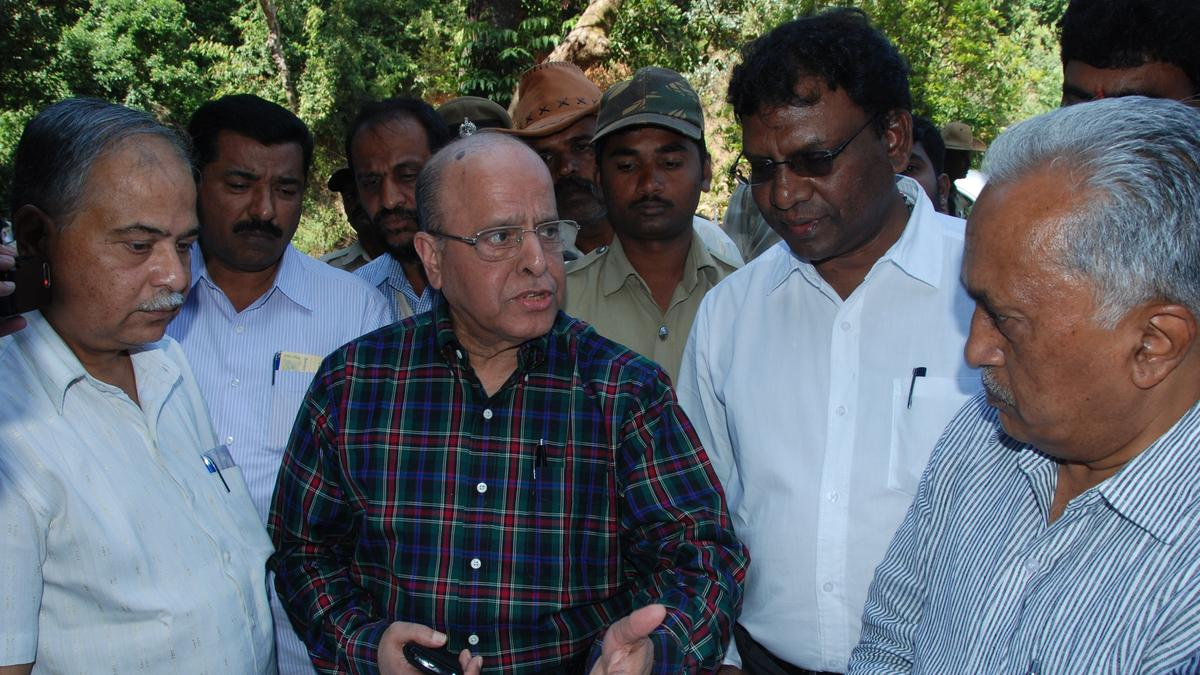
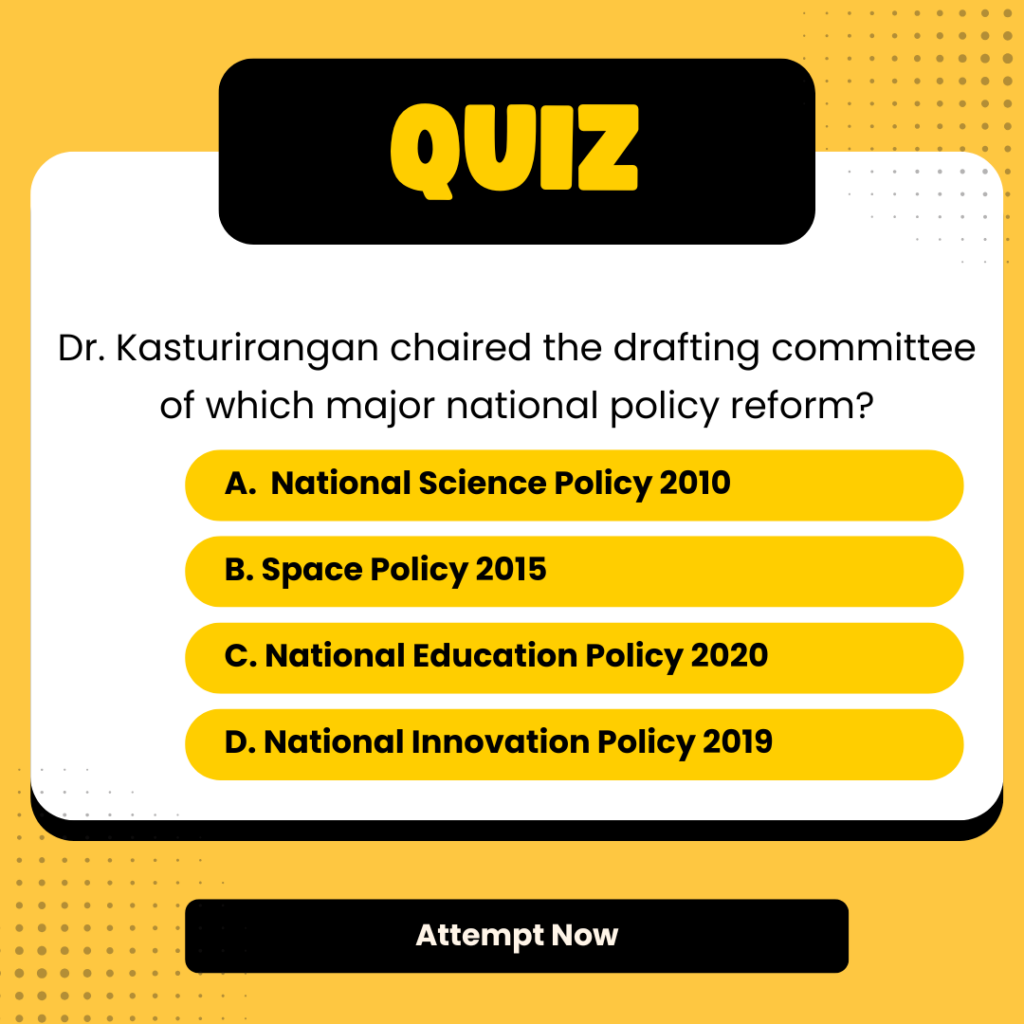

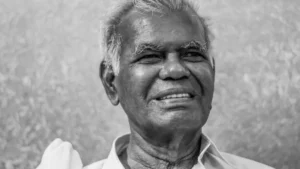 A Century of Struggle: CPI Veteran R Nal...
A Century of Struggle: CPI Veteran R Nal...
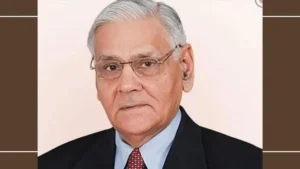 End of an Era: Steel Veteran Jatinder Me...
End of an Era: Steel Veteran Jatinder Me...
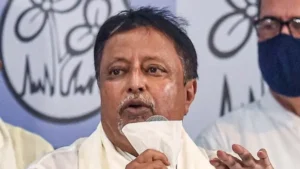 Who Was Mukul Roy? ‘Chanakya of Bengal P...
Who Was Mukul Roy? ‘Chanakya of Bengal P...








